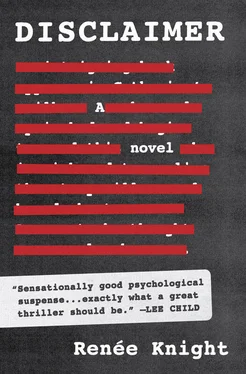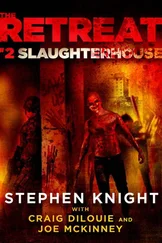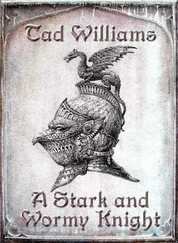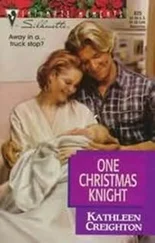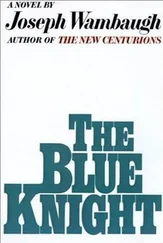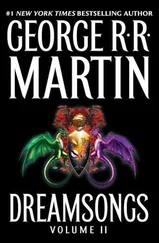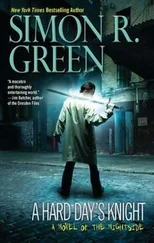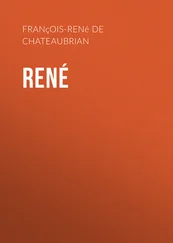Renée Knight - Disclaimer
Здесь есть возможность читать онлайн «Renée Knight - Disclaimer» весь текст электронной книги совершенно бесплатно (целиком полную версию без сокращений). В некоторых случаях можно слушать аудио, скачать через торрент в формате fb2 и присутствует краткое содержание. Год выпуска: 2015, Издательство: Harper, Жанр: Современная проза, на английском языке. Описание произведения, (предисловие) а так же отзывы посетителей доступны на портале библиотеки ЛибКат.
- Название:Disclaimer
- Автор:
- Издательство:Harper
- Жанр:
- Год:2015
- ISBN:нет данных
- Рейтинг книги:3 / 5. Голосов: 1
-
Избранное:Добавить в избранное
- Отзывы:
-
Ваша оценка:
- 60
- 1
- 2
- 3
- 4
- 5
Disclaimer: краткое содержание, описание и аннотация
Предлагаем к чтению аннотацию, описание, краткое содержание или предисловие (зависит от того, что написал сам автор книги «Disclaimer»). Если вы не нашли необходимую информацию о книге — напишите в комментариях, мы постараемся отыскать её.
recreates in vivid, unmistakable detail the terrible day Catherine became hostage to a dark secret, a secret that only one other person knew-and that person is dead.
Now that the past is catching up with her, Catherine’s world is falling apart. Her only hope is to confront what really happened on that awful day even if the shocking truth might destroy her.
Disclaimer — читать онлайн бесплатно полную книгу (весь текст) целиком
Ниже представлен текст книги, разбитый по страницам. Система сохранения места последней прочитанной страницы, позволяет с удобством читать онлайн бесплатно книгу «Disclaimer», без необходимости каждый раз заново искать на чём Вы остановились. Поставьте закладку, и сможете в любой момент перейти на страницу, на которой закончили чтение.
Интервал:
Закладка:
Would they have believed her though? She had left the keys to her room in the door. She knew that however much evidence she produced, someone, some man probably, would stand up in court and call her a liar, would tell her that she’d enticed this young man into her room. That she had known him. He’d bought two drinks in the bar of the hotel she was staying in — would anyone remember that she hadn’t joined him there? But then he died. Thank God, she had thought. He is dead. And she knew she wouldn’t need to have to prove herself innocent, so when she had the film of their holiday developed she destroyed the photographs of her injuries and kept the snaps of her and Nicholas and Robert.
When Nick had bounced on her bed, she had lain there pretending to smile, pretending to watch him. Every action, every word that morning was disembodied. It hadn’t come from her. They had breakfast. Nick ate, she didn’t. She even remembers him telling her to eat up. He was desperate to go to the beach. She didn’t want to, but what else would they do? She did try to change their flights. Nicholas was impatient as they hung around the hotel, waiting for an answer. It was no. So they went to the beach. And on the way she bought him the dinghy. A lifesaver, she thought at the time. Keep him happy, keep her upright. It did keep him happy. In, out, in, out he jumped, chatting to himself, playing the part of every member of the crew. And the heat and the shock suffocated her and she lay her head down and she closed her eyes and she fell asleep. She didn’t watch her little boy. He nearly drowned. It was a perfect stranger who saved him.
Robert stops asking why she didn’t tell him and it makes her feel forgiven. He knows she didn’t have an affair; he knows she didn’t betray him. And he has a new role now. He is no longer the aggrieved husband, he is the supportive one. He is there to help her and he urges her to talk to someone, a professional, who will be able to guide her back to the past and then lead her out again, but Catherine is sickened by the past. She is not going back there. She should have gone back there a long time ago, but it’s no place for her now. It is the present she wants to concentrate on.
56. AUTUMN 2013
I have been spending a lot of time thinking about Jonathan, trying to understand what sort of person he was. It is hard to admit that you do not know your own child, that you never really knew your own child.
I said once that Jonathan would never have died of shame because of his mother’s love, that whatever he did she would always forgive him. But in a way I think he did die of shame. The Spanish used the right word: “sacrifice.” When he raped Catherine Ravenscroft, I think he knew he had started down a road from which he could not return. He had lost himself. He didn’t risk his life, he deliberately gave it. Perhaps I am grasping for something to comfort me, but why else would he have done something so out of character? I believe Jonathan looked himself in the eye and had the courage not to flinch. He saw himself for who he was. Very few of us are willing to do that. I am only now beginning to find that strength and I suspect Nancy never did. That takes courage, doesn’t it? To look beneath the mask and see the real you?
I cannot be certain that he had not raped before, but I don’t believe he had. I do know though that something sent his girlfriend Sarah running home to her parents. We called her his girlfriend, but in fact they hadn’t known each other very long and I remember being surprised when he told us that she was going with him on his travels. I was less surprised when she came home early. If he had raped her, her parents would have pressed charges I am sure, but something happened to cause her mother to make that angry phone call. Nancy knew, but she never told me, and to my shame I never pressed her for details. All I knew was that Nancy took up her default position as Jonathan’s defender. She had been doing it for years, ever since he was little.
I recognise Nancy’s voice now for what it was: the voice of a woman demented by grief; a voice I kept alive for years, allowing it to spin out its desperate yarn while I sat back and listened. Nancy dressed up our son into someone he wasn’t and, long before he died, I had colluded with her in covering up all the clues that should have made us uneasy about our boy. Little things when he was little which grew as he grew into bigger and bigger denials of who he was. I had stood by and let it happen. My son was a rapist. Nancy’s son, no. But mine, yes. Did Nancy ever suspect? If she did she showed no sign of it, and even if she had, she would not have allowed herself to believe it. She rewrote Jonathan just as I rewrote her. I am as guilty of delusion as Nancy was. I turned my wife into someone she was not. I wasn’t brave enough to recognise that long before Jonathan died, she had lost her way. For years I had helped stoke up her fantasy, joined in her blind devotion, never once confronting her, never once challenging her, and I rubbed along with them both, the made-up Jonathan and the made-up Nancy. My only defence is that I did it from love. We both did. But it isn’t much of a defence.
Even when he was a small boy, people didn’t warm to Jonathan. He was only at nursery for a month before Nancy took him out and said she wanted to keep him home with her. She said he wasn’t ready for it yet. And then when he had to go to school she took a job there so she could stay close to him. He had friends who came round to play at the house, but he was never invited back. I noticed but pretended not to. I think the children liked coming because of Nancy — she was wonderful with them. It was easier to pretend all was well when he was little, but when he hit adolescence her influence faltered. Still, she was always there to defend him. I should have taken her on but I knew if I had then I would be joining the other side, the enemy, all those who didn’t understand Jonathan. I would have had to do battle with her, my wife the anti-Medea.
Instead, I disappeared into my own little fantasy. I used to imagine what it would be like to have one of the boys I taught as a son. A boy I could talk to. A boy who when you spoke listened and who perhaps was rude or cheeky at times, but at least looked you in the eye, made a connection. After Jonathan died I allowed this fantasy to take hold. I went to pieces.
There had been a boy I taught at GCSE and A level. I pretended for a while he was my son. He wasn’t as clever as Jonathan. Jonathan passed his exams with no effort and an unpleasant scorn for those who struggled. He couldn’t have cared less and looked into his future with the same indifference, which is why Nancy suggested we pay for his trip around Europe. He just needed time to find himself, she said.
The boy I “adopted” could not have been more different. When he went up to university, I followed him there. I took the train to Bristol and told anyone who’d listen that I was going to visit my son at university. My wife and I had children very late, I said when I saw them wondering whether it was possible for me to have a son of university age. I spent a fortune getting the train up and down to Bristol. Nancy never knew. I’d taken time off work but she thought I was going into school each morning. I stopped going after the beating. I was glad for it. It knocked some sense into me.
It is not Nancy’s fault, any of this. It is mine. My love took root in our first twenty years together and I had neither the desire nor the will to undo it, then or now. I still see so clearly the woman I fell in love with, the woman I married and lived with. But now I also see the woman she became after Jonathan was born. An initial blooming, but then an uncontrolled growth of suckers, branches, straggling unkempt shoots, taking off as she tried to reach out and hold on to him — to keep him safe — to turn him into something he wasn’t. She had to distort herself to do that: she had to become a thorny, knotty creature. I should have taken my pruning shears and cut back the suckers before they got out of control, before they drained the life out of what had been good. You have to be cruel to be kind. Cut back, just so, in just the right place, so the plant isn’t starved of nourishment, so it is able to flower.
Читать дальшеИнтервал:
Закладка:
Похожие книги на «Disclaimer»
Представляем Вашему вниманию похожие книги на «Disclaimer» списком для выбора. Мы отобрали схожую по названию и смыслу литературу в надежде предоставить читателям больше вариантов отыскать новые, интересные, ещё непрочитанные произведения.
Обсуждение, отзывы о книге «Disclaimer» и просто собственные мнения читателей. Оставьте ваши комментарии, напишите, что Вы думаете о произведении, его смысле или главных героях. Укажите что конкретно понравилось, а что нет, и почему Вы так считаете.
